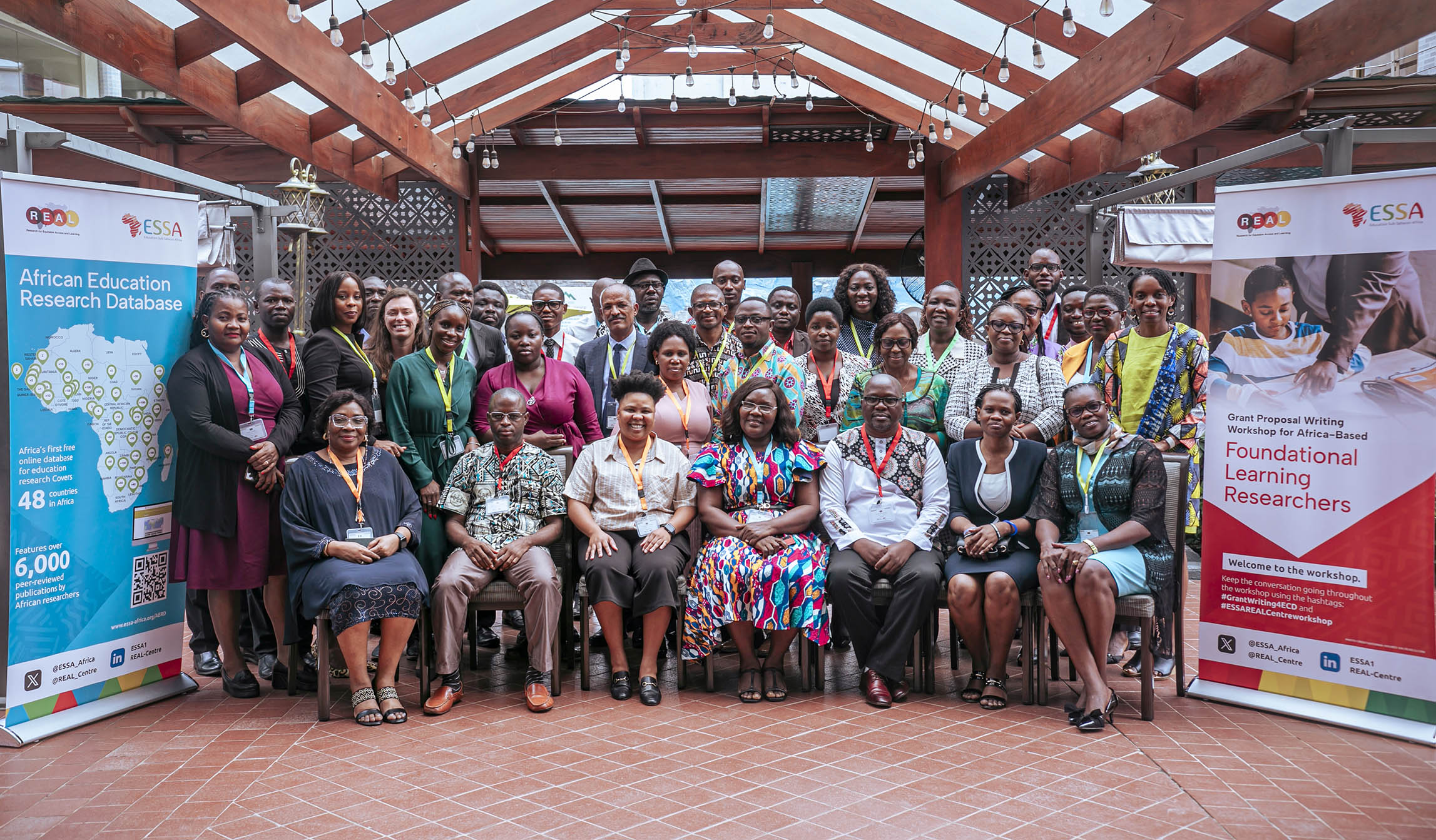Impact Stories

Impact Stories
-
Strengthening education research in Africa
The evidence shows that production and use of research in/about Africa is dominated by academics and publishers in the Global North - even in African Studies. African-led research accounts for only 3% of global research output, and more than 80% of available locally led education research is considered underfunded. This inequality persists despite the high impact of research from the Global South: “when a problem is local, locals appear best placed to address it.”
Researchers working on education in Africa are an untapped resource within local knowledge ecosystems. Their understanding of local education systems and challenges is often combined with strong connections with politicians, other decision-makers, and practitioners. This means that they are well-placed to help ensure that evidence informs local policy and practice. However, these researchers are held back by numerous challenges, from poor funding to lack of professional development opportunities to low visibility.
Together, we developed an online African Education Research Database (AERD) with over 6,000 African research works on education. This database not only enhances the visibility of African research but also consolidates evidence for policy and practice, shaping future research priorities and partnerships.
Maud Seghers, Senior Education Advisor at VVOB and user of the AERD, highlights its impact. 'The claim is often made that education is under-researched in Africa, and there is not enough information available. While this is not completely untrue, the reality is that there is a lot of research and information out there that only needs to be unearthed and made visible. This is where the database comes in and, so far, it has done an excellent job of increasing the visibility of education research and scholars in Africa. The platform also plays an impactful role in our daily work as we are continually seeking education research to learn from and improve our work.'
Expanding impact through convening and professional development
-
Identifying and connecting African education researchers dedicated to enhancing early childhood development and foundational learning.
-
Hosting a workshop that brought together over 53 education academics and policymakers from across Africa and generated practical, demand-driven solutions for greater support from funders and policymakers. This workshop was featured by DEVEX and a LinkedIn post by one of the participants.
-
Recommending concrete funding opportunities to supporters of education research through the Enhancing Education Research in Africa (EERA) consultation. We are collaborating with our partners, including Southern Hemisphere and education researchers, policymakers, and practitioners across Africa, to develop a plan for change and practical investment ideas aimed at strengthening the field of education research.
-
-
Understanding and addressing faculty shortages
Our research has provided us with an understanding of African universities—their strengths, challenges, and structures. For example, we know that there is a significant shortage of quality teaching staff and academics. Collaborating with the Association of African Universities, the Population Reference Bureau, the Ghana Tertiary Education Commission and the Inter-University Council for East Africa, we have sought to understand the challenges relating to faculty shortfalls and explore potential solutions.
Our starting point was to understand what the data was saying about the demographics of faculty. Through collaborative research, the consortium of partners highlighted insights into faculty composition and the specific challenges faced by universities in both Ghana and the East Africa Community. For example, Kenya is estimated to need an additional 26,000 faculty members by 2030 to achieve desired student-teacher ratios. Additionally, we conducted research on the impact of COVID-19 on faculty, teaching methods, and potential solutions for challenges in sub-Saharan Africa.
These efforts have yielded tangible outcomes in addressing faculty challenges in Ghana. We collaborated with the Ghana Tertiary Education Commission (GTEC) to introduce a 'faculty planning tool,' enhancing faculty planning in the tertiary sector. Moreover, we assisted GTEC in revising Ghana's tertiary education policy norms using evidence from our DAF work. These norms now serve as regulations, performance benchmarks, monitoring tools, and resource planning guides for Higher Education Institutions in Ghana.
In the East African community, our research and partnerships have sparked a new phase of action. We identified a systemic issue—a scarcity of data on faculty and higher education systems in the region. Currently, our consortium's focus is on urgently consolidating comprehensive and reliable data while advocating for improved data systems within universities. This work aims to foster a culture of data collection and collaboration, striving for a coordinated and unified approach to data in higher education. This transformative step is crucial in supporting policymakers to design and implement reforms that leverage data for enhancing the quality of education in universities.
-
Helping young people transition into work
Through research we have identified the school-to-work skills gap as an important systemic issue for young people in African universities and colleges. We have partnered with like-minded institutions such as the Education Collaborative (Ashesi University in Ghana) and Kepler (Rwanda) to delve deeper into the aspect of career service systems. These collaborations resulted in a recent report, 'What Next? Enhancing African Students' Transition to Employment through Effective Career Services.'
This report offers evidence-based recommendations for universities, colleges, and employers to bridge the gap between education and employment. The launch of the report in Accra, Ghana, in June this year brought together employers, university leaders, policymakers, and young people to identify concrete actions that will increase employment opportunities for young people as they leave school. By fostering connections between employers and educational leaders and implementing proven solutions, we contribute to ensuring that young people transition from school-to-work.